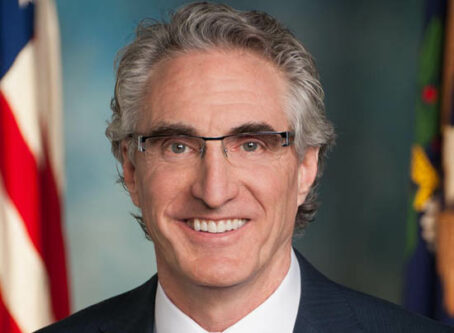Rhode Island Senate backs regional climate pact
Progress continues to be made at the Rhode Island statehouse toward passage of a regional climate pact to aid transportation work and limit emissions from road, rail and air sources. Fuel tax increases are expected to result from the adoption of the plan.
The Rhode Island Senate voted 38-7 to advance a bill to formally join a regional climate pact dubbed the Transportation and Climate Initiative. The legislation now heads to the House.
Transportation and Climate Initiative background
In late 2020, then-Rhode Island Gov. Gina Raimondo along with governors in Connecticut and Massachusetts, and the mayor of Washington, D.C., signed a memorandum of understanding stating their intention to bolster transportation funding and reduce emissions via the regional cap-and-invest program.
Each participating state is responsible for approving the final tax plan.
According to a news release, the Transportation and Climate Initiative requires large gasoline and diesel suppliers to buy what are called “allowances” in a cap-and-trade plan. Essentially, companies would be limited to how much carbon dioxide they could emit. After reaching its cap, a company could pay the government a certain amount of money to go beyond that limit. Allowances a company could purchase would decline each year.
The initiative is touted as cutting greenhouse gas emissions from vehicles in the region by 26% from 2022 to 2032.
The program is estimated to generate about $3 billion over the next decade. Participating states are expected to use that money to invest in “clean transportation” options and to help stimulate economic recovery from the pandemic.
Rhode Island details
Dubbed the Transportation Emissions and Mobile Community Act, the Rhode Island legislation would set statutory framework for adoption of the program. Specifically, regulatory authorities, legal compliance obligations, and carbon allowances for auction would be established.
The legislation – S872 – is described by supporters as providing the funding the state needs to make clean transportation options available and affordable for all Rhode Islanders, while significantly reducing pollution.
Sen Alana DiMario, D-Narragansett, says the transportation sector is the largest source of carbon emissions in the state at 36% of greenhouse gas emissions.
“There’s broad consensus that we have to drastically reduce our carbon emissions,” DiMario, said in prepared remarks. “The TEAM Community Act is the plan we need to get moving on that track.”
The legislation would route 35% of proceeds from the program to communities described as the hardest hit by transportation emissions.
Back and forth
DiMario said the regional initiative would allow for the costs of transportation work to be covered by fuel suppliers instead of by consumers.
“The TEAM Community Act will ensure that the revenue stream to make this possible will be funded by the fuel companies rather than the consumer.”
Critics point out that fuel suppliers simply will cover their additional costs related to allowance purchases by charging consumers more at the pump. In the end, statehouse Republicans say the regional plan would trigger a financial punishment for rural residents around the state who must drive to get around.
“It will take money away from people and redistribute it, which I feel is discrimination because of where we live,” Sen. Gordon Rogers, R-Foster, recently testified.
Opponents add that the expectation is for fuel costs to initially increase 5 to 17 cents per gallon.
Connecticut legislative effort delayed
In Connecticut, consideration of legislation to join the regional climate pact has been put off until next year.
Connecticut Gov. Ned Lamont decided early this month to abandon pursuit of the plan to require fuel suppliers to purchase permits for the resulting pollution from sold fuel.
In addition to claims about rising fuel costs that would result from adoption of the plan, GOP lawmakers voiced concern the revenue raised would be used for other purposes. As a result, road users would again be called upon to foot additional costs.
Statehouse Democrats cited fearmongering about the plan for the decision to put off their legislative pursuit until the 2022 regular session. LL
More Land Line coverage of news from Rhode Island.









